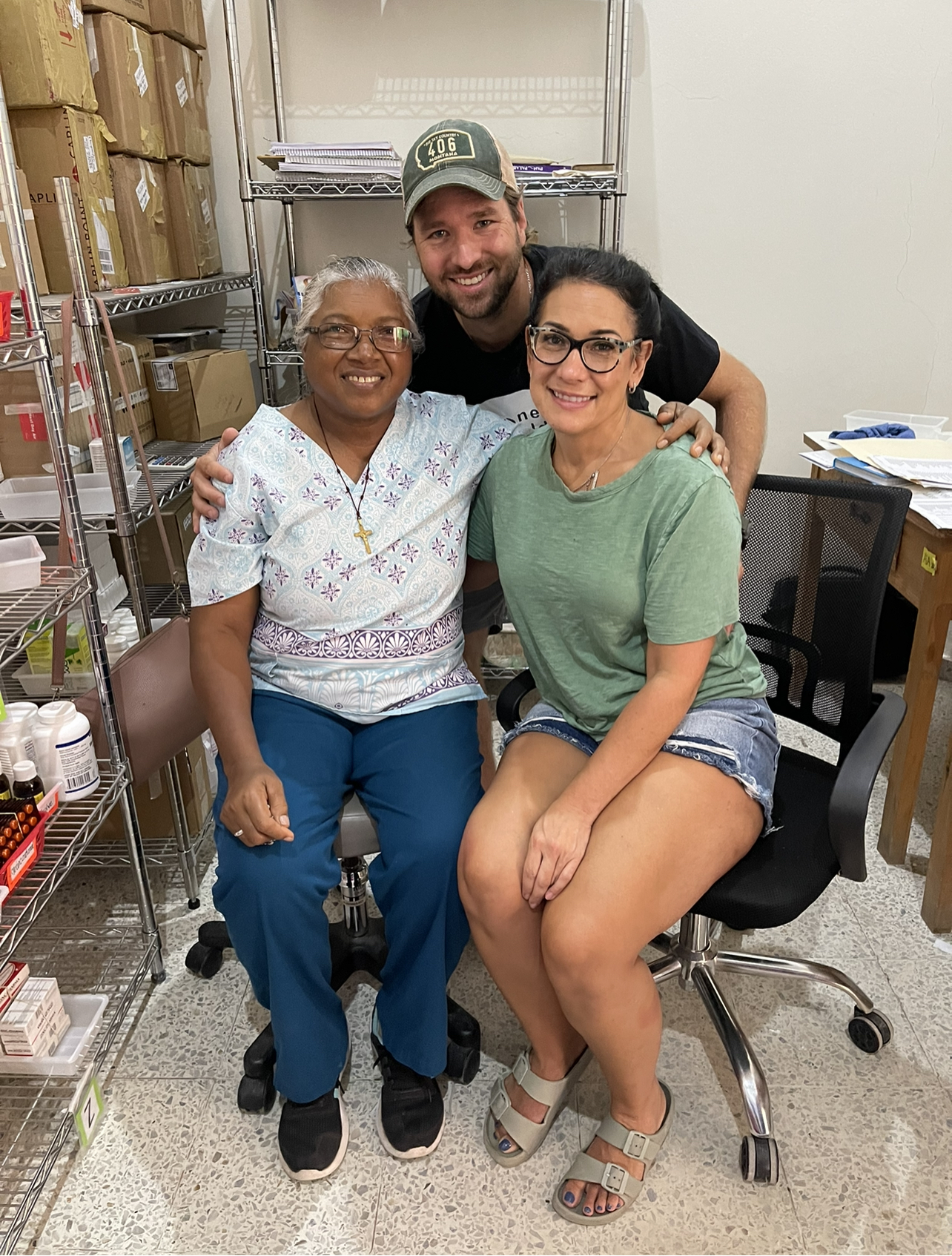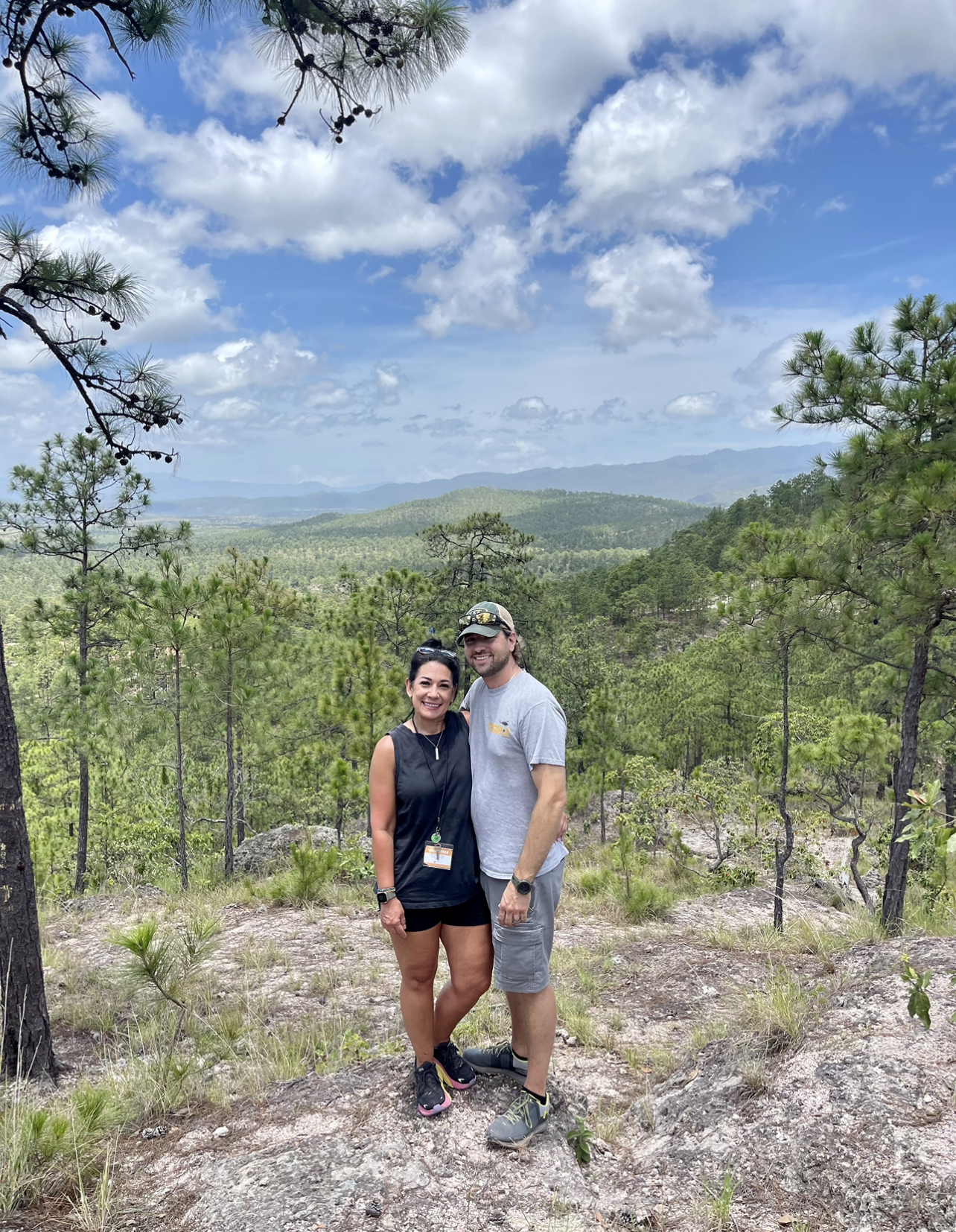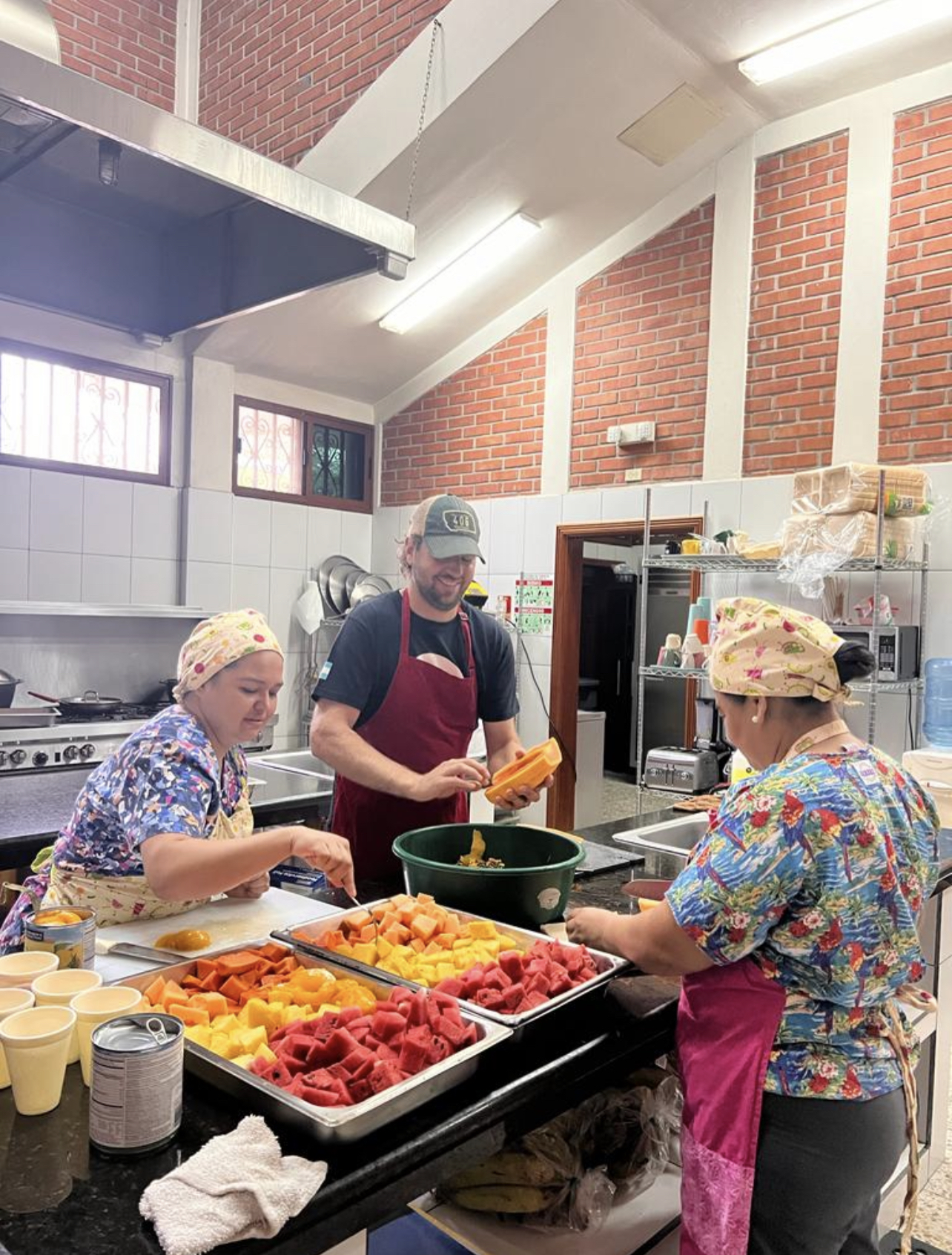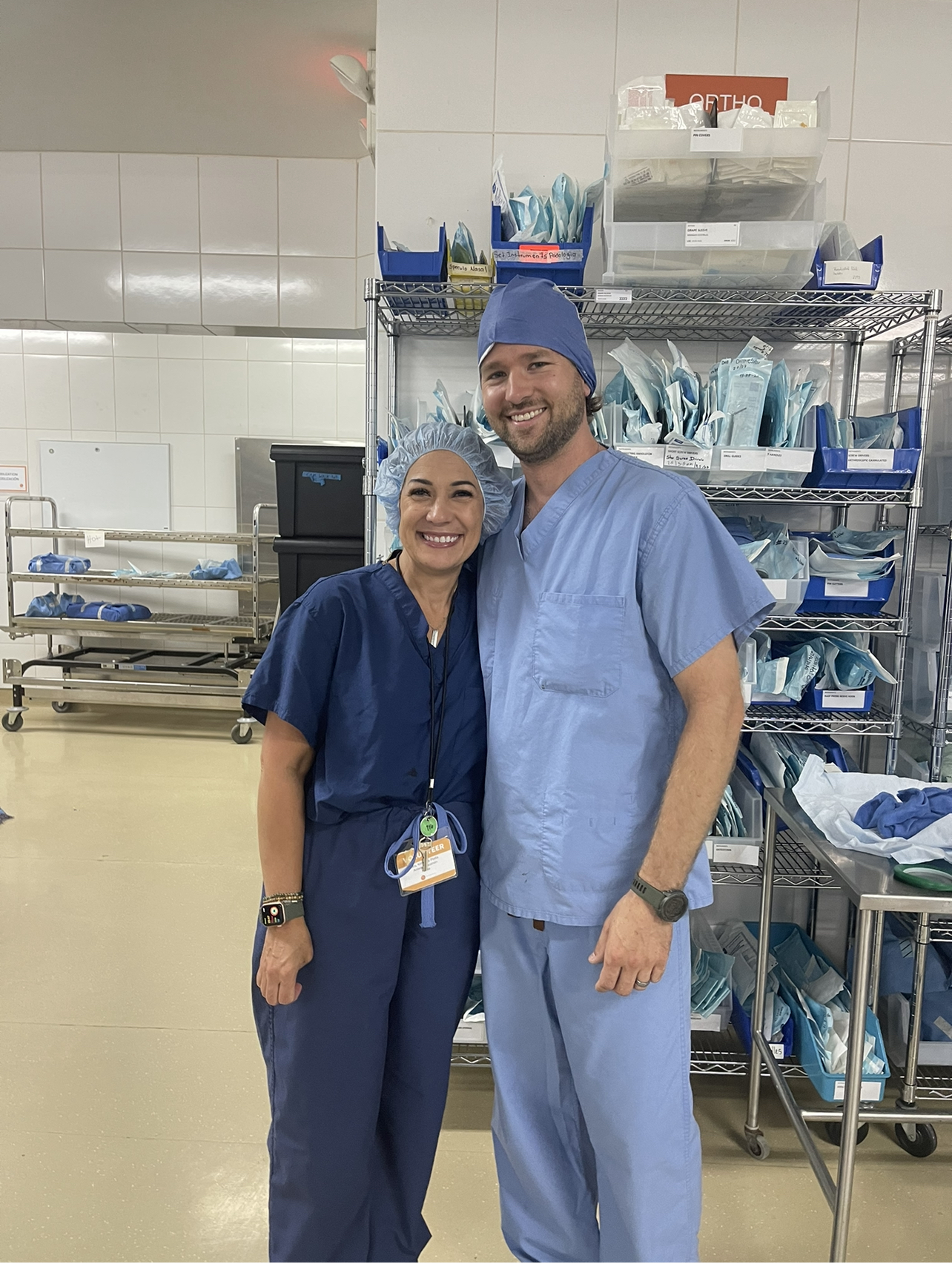From the PACU to Honduras: A Couple’s Unforgettable Mission with OWS
Can you tell us about your role as a PACU nurse with One World Surgery?
Kim: Post Anesthesia Care Unit (PACU) in simple terms takes care of people right after they wake up from surgery until they are stable and ready to be with their families and go home. When I signed up for my first trip, I enrolled as a nurse and thought that I would offer general help around the surgery center as needed. I was an ICU Nurse several years ago but have been teaching at college and working for Optum for 12 years. I wasn’t sure if I still had the level of skill needed. After 4 surgery missions in the PACU, I am certain that a majority of nurses who have worked at the bedside in a hospital, in any chosen specialty, will do just fine in PACU.
For my first trip, we didn’t decide on my assignment until I attended clinical orientation on Sunday. At orientation, the local Honduran OR/PACU Charge Nurse, JC, said not to worry he would show me how to do everything in PACU, as that was where there was a need. During my first days JC was so helpful. He would check on me frequently as each patient came and went, to see what I needed help learning how to do. By the last day of that mission, I felt like I could finally show up for work and really be useful. After I completed the first mission and learned my job role, my next 3 trips were so enjoyable! I was so excited to see the same local Honduran staff that remembered me, the same translators that became my friends, the same volunteer coordinators that know my favorite snacks and the same routine at the airport.
What motivated you to volunteer?
Kim: I’ve been a nurse for 25 years and have always wanted to use my nursing skills to volunteer around the world. Two things always held me back from signing up for a medical mission: the cost and safety. I have 3 children and being able to provide for my family and not put myself in harm’s way were always my most important priorities.
2 years ago, I read that Optum was a supporter of OWS as they were building the clinic in the Dominican. When I explored further, I found out that they also supported work in Honduras. When I dug a little deeper, I found that Optum would pay my volunteer fee and let me code my time away from work to a Medical Mission category rather than using my own PTO. Because Optum covered the volunteer fee, I could afford to go. Every barrier that I had before, had been removed by Optum. I just needed to buy a plane ticket.

What were some of the most memorable moments or cases you encountered while volunteering with One World Surgery?
Kim: I’m always so proud when I walk up to the surgery center in the morning and say, “Buenos Dias”, to all the patients waiting with their families for their appointment. They look so happy, and in my heart, I know it’s because some of them have been waiting several months for this special day that’s going to change their lives and I am so blessed to be a part of it. I love the magical moments when the patients wake up and realize where they are and that their surgery is done. They lift up the covers to take a peak at their limbs and are happy, some even have tears of joy.
Before my first mission I watched every OWS video posted on their website, YouTube, Facebook, and Vimeo. I don’t think that I expected to see so many of the local Honduran doctors and nurses featured in the videos working right alongside us at the surgery center. I was a bit starstruck. When I got home from the first trip, I would share those videos with my family so they could see my friends.
Can you share any challenges you faced while working in a different country’s healthcare system, and how did you overcome them?
Kim: Volunteering at OWS feels like working at a surgery center in the US. It was created by medical professionals from the US and the equipment and supplies come from the US. The processes and procedures and way we do things are based on the same core principles that we learned in nursing school.You have all the supplies you need, but they are limited and not always in the convenient “kit” that we are used to. For example, to start an IV or put in a catheter you may need to get help from the local staff to gather all of your supplies. Betadine might be in a gallon jug rather than pre-moistened swabs and you will probably need to make your own saline flushes in your spare time. We calculate our own IV drip rates rather than using a pump. We draw up our medications from large vials and calculate our own dosages rather than having a pyxis system that dispenses pharmacy items. Lucky for me these are all things we did as nurses 25 years ago and so it felt simple and familiar to me. I think this is why I love working there.

Can you share any special moments or memories from your anniversary celebration?
Kim: The whole celebration came to be because I forgot that it was our anniversary! I had been so busy working before the trip that I waited until the very last minute to pack our bags. At 1am I was packing our luggage and in my husband’s backpack I found a card with my name on it, and it hit me: our anniversary was going to be on our last day in Honduras. I told my friend Perla how bad I felt. She said that the hospitality staff travel back and forth throughout the week to Tegucigalpa, and she’d talk with them about picking me up a card. On our last night before dinner, Saravia texted me that she had the card. We secretly met outside her room. I offered her a few dollars for the card, and she wouldn’t take it. I wrote on the card in my best Spanish and hid it in my backpack for the airplane ride the next day. What I didn’t expect was the kitchen ladies baking us the most beautiful cake for after dinner and the hospitality staff had decorations and a card that all the other volunteers signed. My husband always saves the cards I give him, but he loved this card so much because it was purchased in Honduras and the wording was in Spanish so that anniversary will always be special to us.
That gave us something special as a married couple. When you come home from a medical mission, you’re so energized and excited about the spirit of giving, but you don’t have anybody to talk to about it. Now that the two of us went together, we have so much to talk about, and people see us as a united front. I feel supported and understood and that’s been really important for me.
This was your first time volunteering out of the country. What inspired you to join Kim on a medical mission with One World Surgery?
Jestin: It was never in my wheelhouse to do something like this. This was my first trip with a passport outside the US in my life. My wife talks about the local staff as friends, and we sponsor a child at NPH that she visits each time she goes back. It was really cool to meet people from all over the country that are like-minded, caring, and compassionate. And I still keep in touch with everybody from our group.
How did you prepare for your volunteer experience in terms of adapting to a new environment and culture?
Jestin: I practiced a lot with Google Translate before we left, just in case. I wasn’t sure what work I’d be doing and if it would be rainy, so I planned out clothes and shoes for any type of day.

Can you share some of your most memorable experiences or interactions with the local communities during the medical mission?
Jestin: I loved getting to meet new people and hear about their lives. Sister Vincentia, who works in the pharmacy, was my absolute favorite. What an honor it was to hear her stories of her time with Mother Theresa. I loved spending time with the kids. Playing with them in the park and teaching them pickle ball was so fun. I liked being able to contribute to something bigger and being part of a community.
Can you discuss any personal growth or insights gained from your time volunteering with One World Surgery?
Jestin: I want to learn more about their culture and learn their language so I can really get to know the local staff that I worked with on the farm and in the kitchen. I have so many questions for them! I’ve been practicing my Spanish since I got home. It was so nice to feel appreciation for the simple things I could help with. I also felt that little things to us mean a whole lot to them, and it makes you feel good about the work you do. It’s really not work at all.
Lastly, what message or advice would you give to individuals who are considering volunteering with One World Surgery for the first time?
Jestin: Do it. Don’t overthink it. Don’t be scared. Pack light and the food is great.
STORIES
